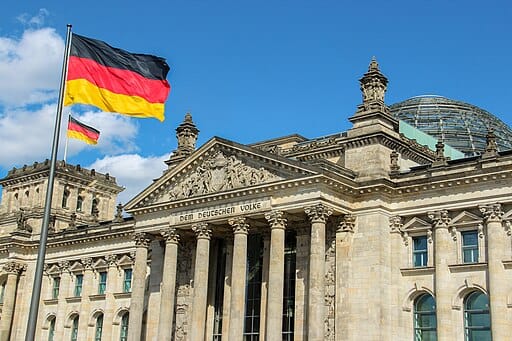Hi, I’m Pastor Lutzer, and many of us are having the opportunity of touring Germany to learn about its history and the lessons that apply to us. Perhaps you’ve already noticed that we are very close to The Reichstag, what we could call the German parliament. On it is written “Dem Deutschen Volk,” that is to say, “For/To the German People.” Some people debate whether or not it was built and dedicated for the German people; but nonetheless, those are the words that are on it.
But the most famous event that you and I should consider today is when it was burned in 1933. Hitler, who had just become the Chancellor, spoke to the German people and told them that they couldn’t meet in the Reichstag after the fire. He went to Potsdam and there gave a speech that basically said it is necessary for him to exercise emergency powers and take away civil liberties – in other words, there would no longer be freedom of assembly and the German people could no longer enjoy freedom of speech. Of course, from there, things began to deteriorate, and pretty soon what you had was a situation in which the dictator took over everything, including the courts. And the implications of that are absolutely huge.
Now, who burned the Reichstag? Well, there are many historians who think that Hitler himself did it – his men, probably helped in the process. There was a man by the name of Marinus van der Lubbe who was ultimately held responsible. Evidently, he crawled into the basement, poured some flammable liquid in there, and lit it.
But here’s the takeaway: when people are confronted with chaos on one side, or law and order on the other, they will always choose law and order. That’s why, when it comes to dictatorships, a crisis is absolutely important. Germany was in crisis. There was high inflation. Of course, after the war, there were all of these problems. The Weimar Republic was beginning to crumble, and so they turned to someone whom they thought would grant them what they needed – a whole new identity, a whole new sense of nationalism, a whole new sense of purpose. For that, they were willing to give up their freedoms. Why? Because it is better to give up your freedoms and have bread, than it is to have freedom and starve. Great lesson from history right here at The Reichstag in Berlin, Germany.
Thank you so much for joining us today. God bless you.
Related
Sorry, no records were found. Please adjust your search criteria and try again.
Sorry, unable to load the Maps API.
